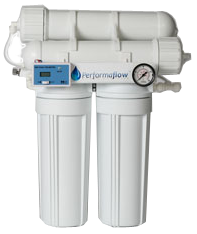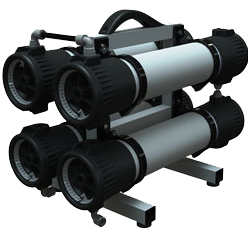Benefits
Health Benefits of Filtered Water
There are a lot of options for drinking water with the hype that surrounds each – tap, bottled, distilled, alkaline, etc. For the everyday consumer, it can all get very confusing. But worry not – we are here to help! Let’s take a look at why filtered water is the best choice.
Common Elements Removed with Filtered Water
Arsenic: Tap water can contain dangerous levels of arsenic, a powerful carcinogenic, that has been linked to an increased risk of the development of several types of cancer.
Aluminum: Municipal water that is unfiltered can lead to an increased consumption of aluminum, a metal that has been linked to Alzheimer’s disease, hyperactivity, learning disabilities in children, skin problems, liver disease and more.
Disinfection Byproducts (DBPs): DBPs are harmful elements that result from disinfecting water with chlorine, a powerful carcinogenic.
Fluoride: While fluoride is commonly associated with improving oral health, it can actually cause a wide range of health problems such as a weakened immune system and cellular damage that accelerates aging.


What about Bottled Water
You may be surprised to learn that 40% of bottled water is bottled tap water! In addition to this commonly unknown fact, here are some other risks that stem from drinking bottled water:
The plastic bottles themselves are created with a chemical called bisphenol-A or BPA, a synthetic hormone disruptor that has been linked to many health problems:
Learning and behavioral problems
Altered immune system function
Prostate and breast cancer
Risk of obesity
Early puberty in both genders
What Are Some Health Benefits of Drinking Filtered Water
An increased intake of pure, healthy water will enhance:
Nutrient absorption
Weight loss
Skin hydration
Detoxification
Overall health
Environmental Benefits
Bottled Water is the fastest-growing segment of the entire beverage industry, and it also happens to be one of the biggest polluting ones. The realization that bottled water is seldom of higher quality than tap water has brought the environmental aspect of the industry to new heights.
By filtering your water at home, you will be doing your part to help the environment and stop the following:
A massive influx of plastic was sent to degrade at the dump. A process that takes at least 300 years.
It takes three times as much water to produce a plastic bottle then it does to fill it.
Recycled plastic water bottles require the use of petroleum and the cost of transport for the recycling process.
10 Reasons to Filter Your Water
- Drinking water benefits your health.
- Filtered water is more affordable than bottled water.
- Filtered water is healthier than distilled water, alkaline water, and “vitamin” waters.
- Filtered water tastes better than tap water.
- Filtered water protects the body from disease and leads to overall better health.
- Filtered water removes cryptosporidium and giardia from drinking water, helping to reduce the risk of gastrointestinal disease by more than 33%.
- Filtered water is essential for children’s developing immune systems.
Water filters are the last line of defense between the body and over 2,000 known toxins that your municipalities may not be eliminating. - Filtered water is better for the environment than plastic water bottles.
- Filtered Water improves skin hydration.
ClearHydro™ Products Also Improve the Quality of Your “Garden”
Gardeners have long realized how vital pure water is to the success of their important crops. After all, water is the root of hydroponics and, therefore, the most critical component to a healthy garden. Water acts like a carrier that bathes your root zone with nutrients, additives, and promoters.
If you look at the top nutrient manufacturer’s feed charts, they all require using 0 PPM (parts per million) water as a starting base for the nutrient solution. Without this ultra-pure base, it is much more difficult to dial in the PPM’s of your formula while making sure you have the proper amounts of each component vital to healthy growth.
Organic gardeners using compost teas or bio-extraction solutions should use purified water. Anyone gardening with living micro-organisms such as beneficial bacteria, fungi and nematodes, mycorrhizae, and Trichoderma, must have chlorine and contaminant-free water for those helpful microbes to survive and flourish.
Gardeners that start using pure water never go back to untreated water. A must for gardens of all sizes!
Balance Nutrient Solutions
- Bigger Yields
- Better Taste And Smell
- Avoid Nutrient Lock Out
- Boost Plant Metabolism
- Increase Success Rate
- Achieve Explosive Growth
- Conserve Water
- Remove Contaminates
- Consistent Performance
- ECO Friendly
Contaminants and the Harmful Effects on Plants
PPM / TDS
Water with a high PPM of TDS (total dissolved solids) has unknown contaminants that are the critical cause of nutrient lockout and deficiencies in plants.
Chlorine
Biocide kills beneficial bacteria, fungi, and micro-organisms. Any healthy organic or bio-hydro garden is chlorine-free. If you are using or brewing compost teas or bio-extract solutions, removing the chlorine is essential.
Chloramines
Biocide that’s a combination of chlorine and ammonia and is much more stable than chlorine. It will not dissipate by bubbling or even by boiling off. It can only be removed by proper filtration. Toxic to beneficial bacteria, fungi, micro-organisms, fish, and amphibians. Benefits
Hardness
Dissolved calcium and magnesium that form a scale on equipment and tubing. Too much of either of these is in your water, and you are locking out critical nutrients to your plants. Your plants will be unable to feed properly and will exhibit deficiencies. Pipes and equipment can eventually get clogged and fail. Mineral hardness is the crucial cause of water problems in hydroponics and other gardening systems.
Fluoride
A hazardous waste product that is present in all municipal water. This is a toxic substance to humans and plants. Thirty-four enzymes in plants are affected by fluoride, as is seed germination. Enzyme additives will not do their job correctly with fluoride in the water.
Volatile Organic Compounds
Some VOCs are known or suspected carcinogens. Trace amounts of these can end up in the plant’s tissue, flowers, and fruits.
Iron / Sulfur
Water containing iron or sulfur may have a metallic taste and an offensive odor. Nutrient lockout, algae growth, and equipment staining can result from too much iron on the water.
Pesticides/Herbicides
Local agricultural areas may be leaching harmful contaminants into the groundwater. These can end up in your water supply and your plants.
Bacteria
Local water sources may be affected by animal and human waste. These toxic substances can be found in trace amounts in fruits and flowers and are not benefits to humans.
Nitrates
Runoff from agriculture, animal yards, etc. Toxic substances that contribute to over-nitrification and algae growth. Causes “blue baby syndrome.”
PH
Water with either too high or low PH will not allow nutrients to be absorbed properly and can be corrosive to equipment. Adjusting PH may be difficult due to fluctuations in levels.

